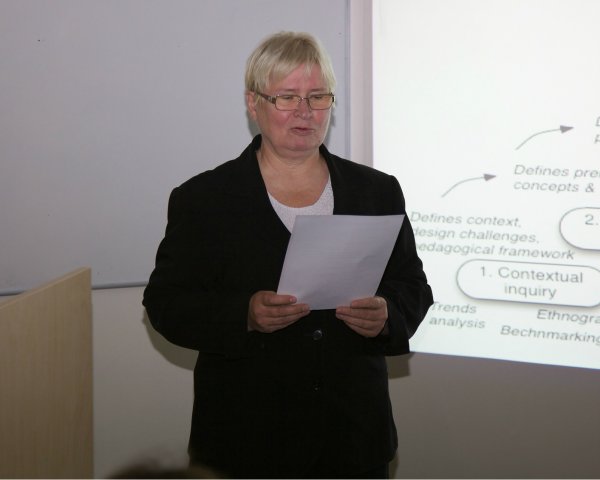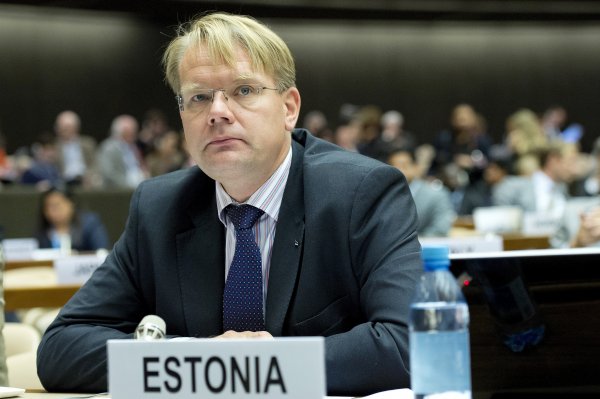Cultural Context
Decision making in Estonia can be a time-consuming process that requires much patience. This is because Estonians tend to be extremely detail-oriented, and will want to examine all aspects of a business deal before reaching any type of agreement. Most Estonians will not leave a job unfinished, and therefore will work overtime to ensure all tasks are completed. The business visitor's best bet is to show respect for his or her Estonian colleagues at all times while avoiding any emotional outbursts. Some visitors may find their Estonian counterparts direct to the point of bluntness, and may feel their counterparts are quite stubborn during negotiations.
Plan to meet with your Estonian counterparts several times before they arrive at any final decisions. Estonian decisions are made at the top, and the decision makers will take their time to ensure they make the right choices. Most Estonians do not care to come to a general consensus for the sake of the group, and they are not afraid to speak their minds. The main key to success in Estonia is to build a formal relationship based on trust, and to present a proposal that features long-term gains for both parties. Overall, Estonians are extremely pragmatic decision makers who value hard facts and evidence.
Power Structures
Estonian companies are organized into strict hierarchies that feature clearly drawn lines of authority. Age, experience, and position are very important, and senior leaders are responsible for making decisions that are in the best interest for the company. In Estonian firms, the top managers are usually not involved until all details have been worked out. This means that the visitor may have to move up and down the middle-management ranks during the buying or selling process. However, if the foreign businessperson is a buyer, rather than a seller, he or she will often be able to meet with the top decision maker more quickly.
Key Contacts
While the majority of final decisions will be made by senior executive members of an Estonian company, business visitors will often meet with middle-management personnel who act as filters and buffers. Therefore, business visitors need to quickly determine who holds the actual power, in order to meet with him or her as soon as possible, while remaining courteous to middle-management colleagues. No matter if you have to meet with one or several Estonian contacts, always follow the Estonian strict sense of hierarchy, and never lose your patience during the process. Raising your voice or losing your temper will damage your standing.
Communicating Styles
Estonians are direct communicators who say what they mean and mean what they say. However, they do use diplomacy, and do not try to cause another person embarrassment or harm the business relationship.
Most Estonians are not emotive speakers, and they do not appreciate robust hand gestures, displays of emotions, or overly loud voices. If they need more time to gather their thoughts or if they are uncomfortable with what is being said, Estonians will show this with silence. Visitors should take care to never interrupt someone while he or she is speaking. While your Estonian contact's communication may seem aloof or cold, he or she will become more open and outgoing as the relationship develops.
Never try to use aggressive tactics, such as hard selling or confrontations. If you do need to address any sensitive matters, do so in a direct, yet polite and tactful manner.
Visitors should never boast about accomplishments, as modesty is a virtue in Estonia.
Implementing Agreements
The legal system in Estonia, especially regarding contract law, is not fully developed, so visitors should be cautious when implementing agreements. Most Estonians will typically want a detailed written agreement at the end of negotiations. Visitors should make sure they get everything in writing, as well as confirmed agreement from their Estonian contacts on all parts of the agreement. In Estonia, each section of the contract will typically be up for renegotiation until the contract is signed and finalized. Even with a written contact, visitors need to follow-up with their Estonian counterparts and maintain the formal relationship to ensure the deal is fulfilled on time and correctly.
Article written for World Trade Press by Kerrie Main.
Copyright © 1993-2025 World Trade Press. All rights reserved.





